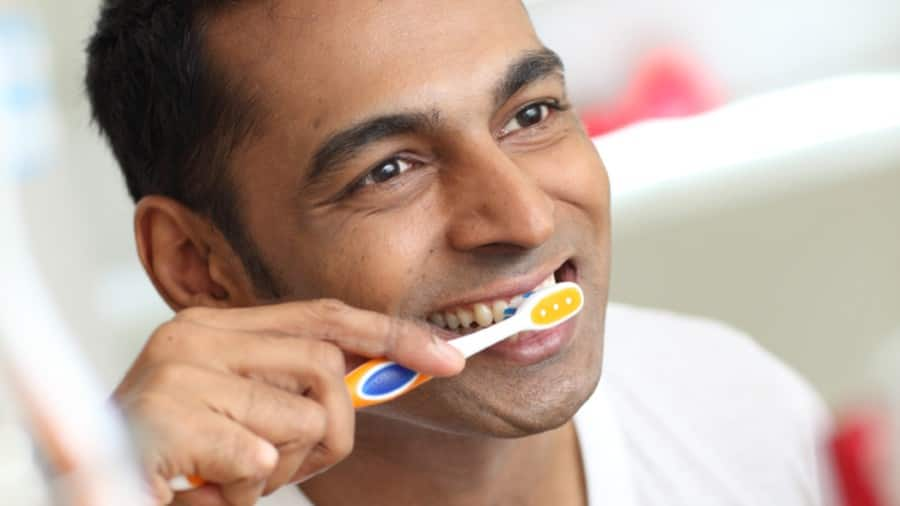Bacteria in the Mouth
Different microbes grow in different places – some adhere to your teeth, some on your tongue, some hide in the tiny pockets between your teeth and gums. Once they’ve found their place, they form diverse communities with other germs. Mouth bacteria work together to protect themselves with a slimy material known as a matrix.
The matrix includes both good and bad bacteria. The good bacteria help keep the disease-causing bacteria in check and aid with your digestion. But while the body’s natural defensives keep bad bacteria under control, they need to be accompanied by good oral health care. If you don’t keep bad bacteria under control, you might end up facing problems like tooth decay, bad breath, and gingivitis.
How to Get Rid of Bad Mouth Bacteria
Here are three things you should do to prevent bad bacteria from growing out of control in your mouth:
Brush it away. Your teeth are covered with a sticky film known as biofilm or plaque. This plaque contains bacteria that will release acids following a meal or snack containing sugar. These acids weaken the enamel on your teeth, increasing your risk for cavities. That's why it's so important to remove plaque from your teeth by brushing twice a day and cleaning between your teeth with floss or an interdental cleaner. If you let plaque build up on your teeth, it can harden into tartar, which irritates your gums and can lead to gingivitis. This is why a daily oral hygiene routine is crucial. It’s also advisable to use a toothpaste that contains fluoride. While all types of fluoride help to make tooth enamel stronger and resistant to acid attacks, stannous fluoride also kills bacteria that cause cavities and gingivitis.
Wash it away. Brushing and flossing can be accompanied by the use of a mouthwash to keep your mouth bacteria in check. Many types of mouthwashes can reduce plaque (and bacteria), help prevent tooth decay, and reduce the speed that tartar forms on the teeth. The National Health Portal of India explains that therapeutic mouthwashes reduce plaque, gingivitis, cavities, and bad breath. Those mouthwashes which contain fluoride help prevent or reduce tooth decay. While cosmetic mouthwashes help reduce bad breath and leave the mouth with a pleasant taste, but these don't deal with the causes of bad breath, kill the bacteria that cause bad breath; or help reduce plaque, gingivitis or cavities. . If you’re wondering how to kill bacteria in your mouth, adding a mouthwash to your oral care routine may do the trick. Don’t forget to consult with your dentist or dental hygienist to find out which mouthwash is right for you.
Keep it away. The more sugar there is in your diet, the more fuel the bacteria in your mouth get to grow and threaten your oral health. So, one of the best things you can do to get rid of harmful bacteria in your mouth is to minimise the fuel they get. Improving your diet and keeping sugary foods and drinks to a minimum can be a difficult task, but it’s gratifying in the long run. You can also keep bad bacteria away by improving the balance of bacteria in your mouth and consuming foods that contain good bacteria. Probiotics like yogurt, kefir, and fermented foods all provide beneficial bacteria that can keep disease-causing bacteria in check.
You might be surprised to have learned of the bacterial activity going on in your mouth. The good news is that a lot of it is helpful, and with good oral hygiene and watching what you eat, you can ensure that the bad bacteria don’t get out of control.
This article is intended to promote understanding of and knowledge about general oral health topics. It is not intended to be a substitute for professional advice, diagnosis or treatment. Always seek the advice of your dentist or other qualified healthcare provider with any questions you may have regarding a medical condition or treatment.
ORAL HEALTH QUIZ
What's behind your smile?
Take our Oral Health assessment to get the most from your oral care routine
ORAL HEALTH QUIZ
What's behind your smile?
Take our Oral Health assessment to get the most from your oral care routine













